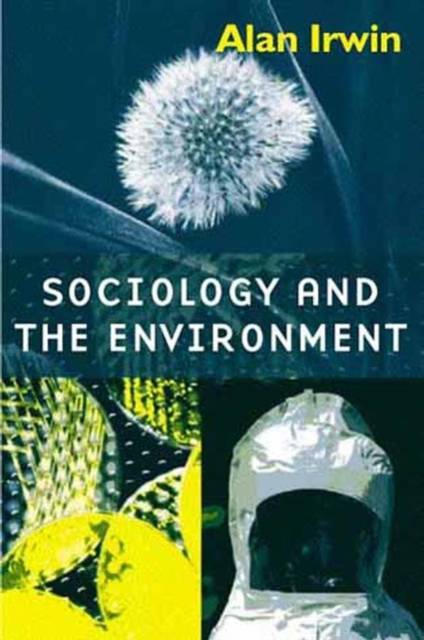
Je cadeautjes zeker op tijd in huis hebben voor de feestdagen? Kom langs in onze winkels en vind het perfecte geschenk!
- Afhalen na 1 uur in een winkel met voorraad
- Gratis thuislevering in België vanaf € 30
- Ruim aanbod met 7 miljoen producten
Je cadeautjes zeker op tijd in huis hebben voor de feestdagen? Kom langs in onze winkels en vind het perfecte geschenk!
- Afhalen na 1 uur in een winkel met voorraad
- Gratis thuislevering in België vanaf € 30
- Ruim aanbod met 7 miljoen producten
Zoeken
Sociology and the Environment
A Critical Introduction to Society, Nature and Knowledge
Alan Irwin
Paperback | Engels
€ 39,95
+ 79 punten
Uitvoering
Omschrijving
Can sociology help us to tackle environmental problems? What can sociology tell us about the nature of the environment and about the origins and consequences of environmental risks, hazards and change? In this book Alan Irwin maps out this emerging field of knowledge, teaching and research. He reviews the key sociological debates in the field and sets out a new framework for analysis and practice. Among the themes examined are constructivism and realism, sustainable development and theories of the risk society. Readers are also introduced to communities at risk, institutional regulation and the environmental consequences of technology. Particular topics for discussion include genetically modified organisms, nuclear power, pesticide safety and the local hazards of the chemical industry. Rather than maintaining a fixed boundary between nature and society, Irwin highlights the hybrid character of environmental issues and emphasizes the role of social and cultural factors within environmental policy.
Specificaties
Betrokkenen
- Auteur(s):
- Uitgeverij:
Inhoud
- Aantal bladzijden:
- 224
- Taal:
- Engels
Eigenschappen
- Productcode (EAN):
- 9780745613604
- Verschijningsdatum:
- 16/04/2001
- Uitvoering:
- Paperback
- Formaat:
- Trade paperback (VS)
- Afmetingen:
- 153 mm x 230 mm
- Gewicht:
- 335 g

Alleen bij Standaard Boekhandel
+ 79 punten op je klantenkaart van Standaard Boekhandel
Beoordelingen
We publiceren alleen reviews die voldoen aan de voorwaarden voor reviews. Bekijk onze voorwaarden voor reviews.









